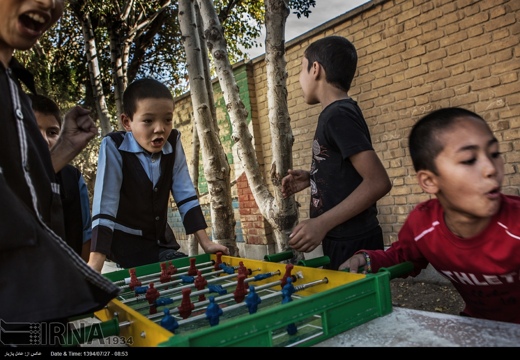According to the Trends in International Migrant Stock: The 2015 Revision, refugees are mainly in Pakistan, Lebanon, Iran, Jordan – and come mainly from three countries – Syria, Afghanistan and Somalia, reports un.org.
Iran continues to host one of the largest and most protracted refugee populations in the world, despite the voluntary return of hundreds of thousands of Afghan (and Iraqi) refugees to their countries of origin over the past decade.
Iran is located in a region that remains home to one-third of the world’s refugees with over three million and a half people. Nearly, 70% of the refugees in the region are Afghans, the majority living and working in Iran (and Pakistan).
The Iranian government is the primary contributor to the country’s refugee program through various ministries and organizations. Additional support is provided through semi-governmental organizations and charities. The government grants the refugee population on its territory access to: medical services, education for students, literacy classes for out of-school children and the labor market.
According to Iran’s Bureau for Aliens and Foreign Immigrants’ Affairs (BAFIA), as of October 2011, the number of refugees registered with the authorities stood at over 882,000 (over 840,000 Afghans and some 42,000 Iraqis). And 97% of all refugees live in urban and semi-urban areas with only 3% in settlements. Besides, nearly 1 to 1.5 million are non-registered refugees.
The government was actively involved in the process leading to the Solutions Strategy for Afghan Refugees (SSAR), endorsed in May 2012, which aims to enhance the prospects for sustainable solutions for Afghan returnees.
Following the international sanctions and deterioration of economic conditions in Iran over the years plus reports on crime blamed on the Afghans, governments in Tehran regularly informed the world body and the leaders in Kabul that the refugees leave sooner rather than later. But it seems most refuse to leave due to the poverty, joblessness, civil war and insecurity in their country.
Between January 2002 and July 2013, UNHCR, the UN refugee agency assisted over 913,000 Afghans to return home voluntarily, and almost 30,000 Iraqi refugees have also been assisted to repatriate voluntarily since 2003, according to unhcr.org. The number of refugees who returned in 2013 also remains low in comparison with the previous years.
The main populations of concern in 2015 in Iran continue to be Afghan refugees, the majority of whom arrived before 2001 as prima facie refugees.
RSD Procedure
Following the comprehensive registration program of refugees in 2001, all Afghan asylum-seekers were required to have their refugee status determined on an individual basis through the government refugee status determination (RSD) procedure.
Also of concern are Iraqi refugees, most of whom were registered in 2002 as prima facie refugees. New Iraqi asylum-seekers are now also required to have their refugee status determined individually through the government RSD procedure. The majority of newly arrived Iraqi refugees originate from central Iraq.
BAFIA, which has the overall responsibility for coordinating refugee affairs in cooperation with other line ministries, remains UNHCR’s main partner in coordinating refugee affairs.
Over the past several years, the financial requirements for UNHCR’s operation in Iran have steadily grown from $36.5 million in 2010 to a revised 2013 budget of $59.6 million, to address the increasing needs of the Afghan and Iraqi refugees.
In 2014, the operation’s financial requirements were set at $69 million, an increase of $9.4 million compared to the revised 2013 budget. This is due partially to an increase in the number of vulnerable individuals relying on UNHCR’s support, owing to rising costs in Iran.
The UN survey also said that nearly two-thirds of international migrants live in Europe (76 million) or Asia (75 million). North America has the third largest number of international migrants (54 million), and globally, women comprise half of all of them. Meanwhile, two thirds of all international migrants were reported to be living in only 20 countries, with the largest number in the US – about a fifth of the world’s total migrants. The next in line is Germany, followed by Russia.
“When we get into a period of dealing with migration and refugee issues, it’s important that we have the facts,” UN deputy secretary general, Jan Eliasson, told reporters at a press briefing, at the UN Headquarters presenting the key findings of the latest United Nations survey on international migrant trends.
“Back in 2000, there were 173 million international migrants, in 2010 there were 222 million, and this past year in 2015, 244 million migrants.”
“Not included in this figure are around 40 million internally displaced people – refugees inside a country,” he added. (Financial Tribune)
